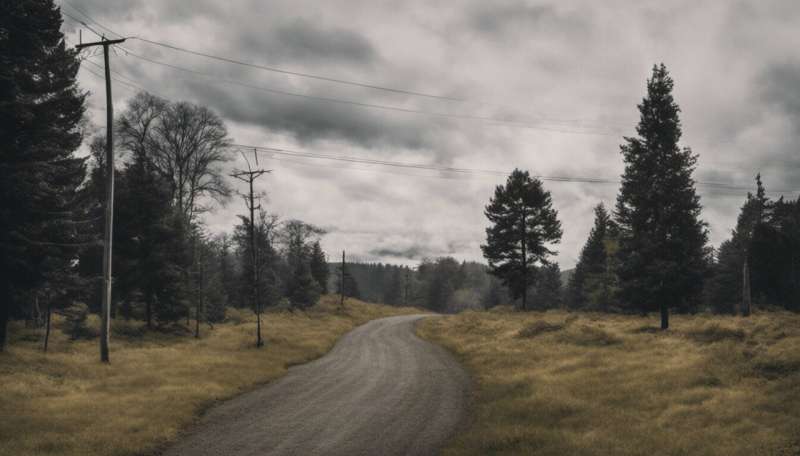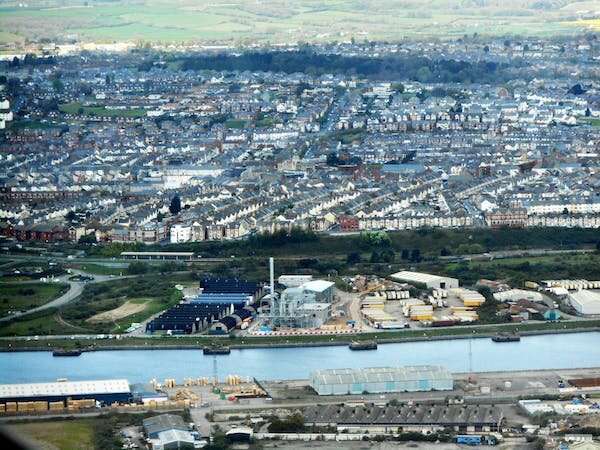This article has been reviewed according to Science X's editorial process and policies. Editors have highlighted the following attributes while ensuring the content's credibility:
fact-checked
trusted source
written by researcher(s)
proofread
It's time to rethink what citizen science really is, say researchers

Citizen science is a popular method of gathering data for natural and social scientists, with the number of projects and publications produced growing year by year. A typical citizen science project uses volunteers to gather data that would otherwise be unaffordable or inaccessible.
But, based on the evidence we gathered during our study of a long-running planning dispute in south Wales, we think it's time to broaden our understanding of citizen science to include a much wider range of activities. These include studying planning and environmental law, as well as being up to date with the science that influences government decisions.
What is science?
Science is an objective, knowledge-producing activity in which rigor leads to the discovery of truths, for those who take a traditional view. In contrast with that, citizen science is often seen in fairly narrow terms. And while cooperation between amateur and professional scientists is based on shared interests, the project design and data analysis remain in the hands of professional scientists. That means there's a clear hierarchy.
What we gain as a society from such projects is often benchmarked against whether there's an improvement in the public's understanding of the topic. There is, however, no obvious sense that science may learn from or be challenged by citizen scientists.
We work within science and technology studies (STS) which looks at how they were created and developed. We study how science and technology sit within their historical, cultural and social contexts. So, on that basis, we think there is a very different role for citizen science.
STS literature suggests that science is socially constructed. In other words, the ways we see and interpret the world around us depends on the availability of scientific instruments such as microscopes, environmental sensors and so forth. That needs sufficient funding as well as a generally accepted means of analysis. And both of those need agreement and compromise between the priorities and interests of different groups of people.
So if science tends to reproduce the privilege and perspective of elite groups, then citizen science offers the possibility of a science for the people, by the people. This would make citizen science an activity in which knowledge is generated from within communities.
It could challenge the type of science used in the decisions that affect our lives and well-being, such as determining safe levels of emissions or decisions on infrastructure.
Barry
We studied a long-running planning conflict in Barry, near Cardiff, which has been ongoing since 2008. It involves a biomass plant in the center of the town, which local environmental campaigners argue should be torn down.
The plant, currently owned by Aviva Investors, is awaiting a decision from Wales' planning inspectorate over whether it can start operating. It sits just 100 meters from a brand new housing estate in the town's docklands area. Some parts of Barry remain high on the Welsh index of multiple deprivation, the Welsh government's official measure of poverty.

We looked at how members of the Barry Citizen Science Group (BCSG) have attempted to prevent the biomass plant from operating. They have spent 15 years scrutinizing the laws and regulations which have led to planning and licensing decisions so far.
But to what extent can this be seen as a kind of citizen science? After all, the plant is dormant, meaning no emissions samples can be taken. Our argument is that the work they have done up until now is a vital precursor to more formal community-led data gathering work.
In the BCSG's case, air quality monitoring was the most pressing concern. For two years, the group has measured the "baseline" air quality in the town using digital sensors. Should the plant begin operating, the group will be able to compare any pollution it produces with their own existing data.
However, beyond that, there are several other strands of the group's activities which, we argue, count as citizen science. They have been involved in many aspects of scientific scrutiny just as though they had been done on behalf of the developer or the regulatory authorities.
They have evaluated, critiqued and formally responded to the developer's highly technical risk assessments and repeatedly challenged decisions taken by the authorities. All their activities have been underpinned by the knowledge of recent advances in the natural sciences, regulatory science, planning and licensing law.
Since 2008, the BCSG has developed an impressive array of technical expertise, which should be recognized in its truest sense as "doing science." To suggest otherwise would be to offer an impoverished and restricted view of the work.
Our hope is that this case study extends the discussion of citizen science so that we can recognize its full potential.
Provided by The Conversation
This article is republished from The Conversation under a Creative Commons license. Read the original article.![]()





















